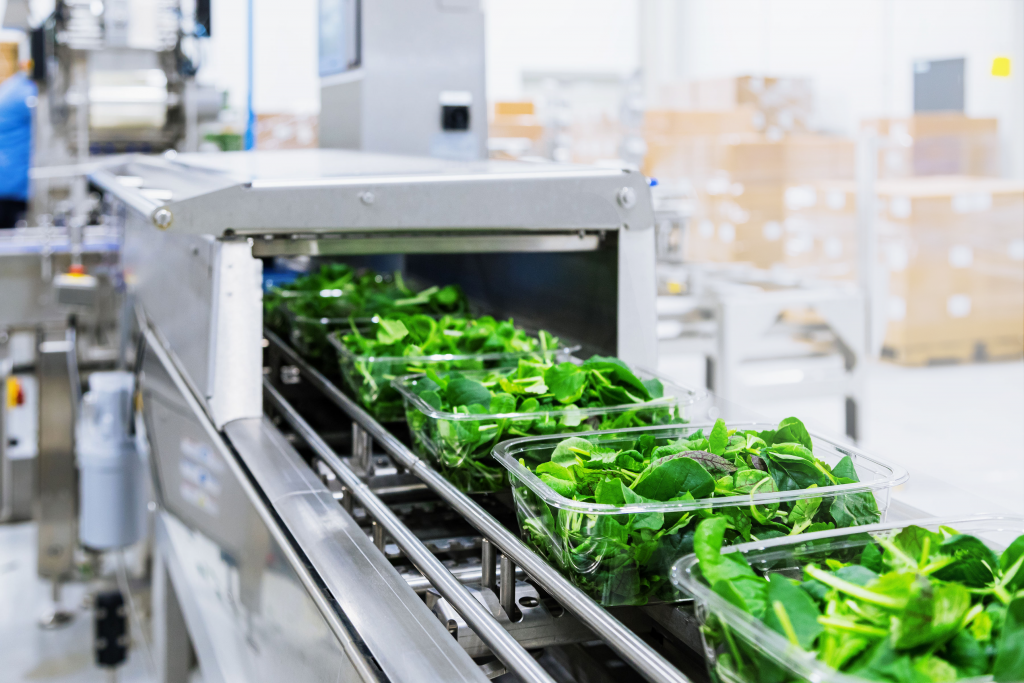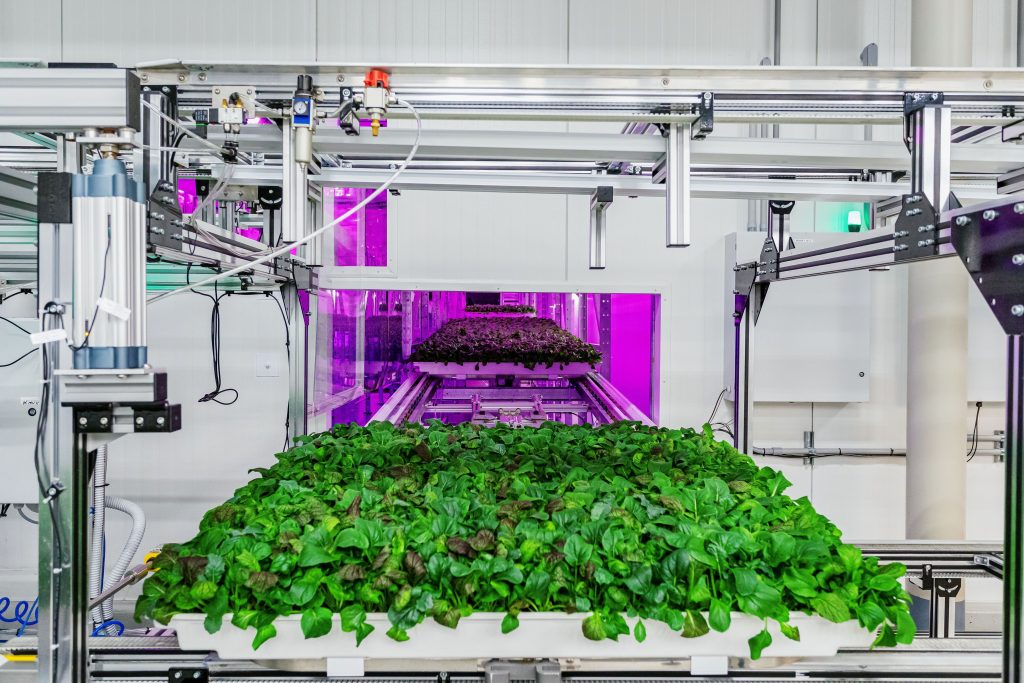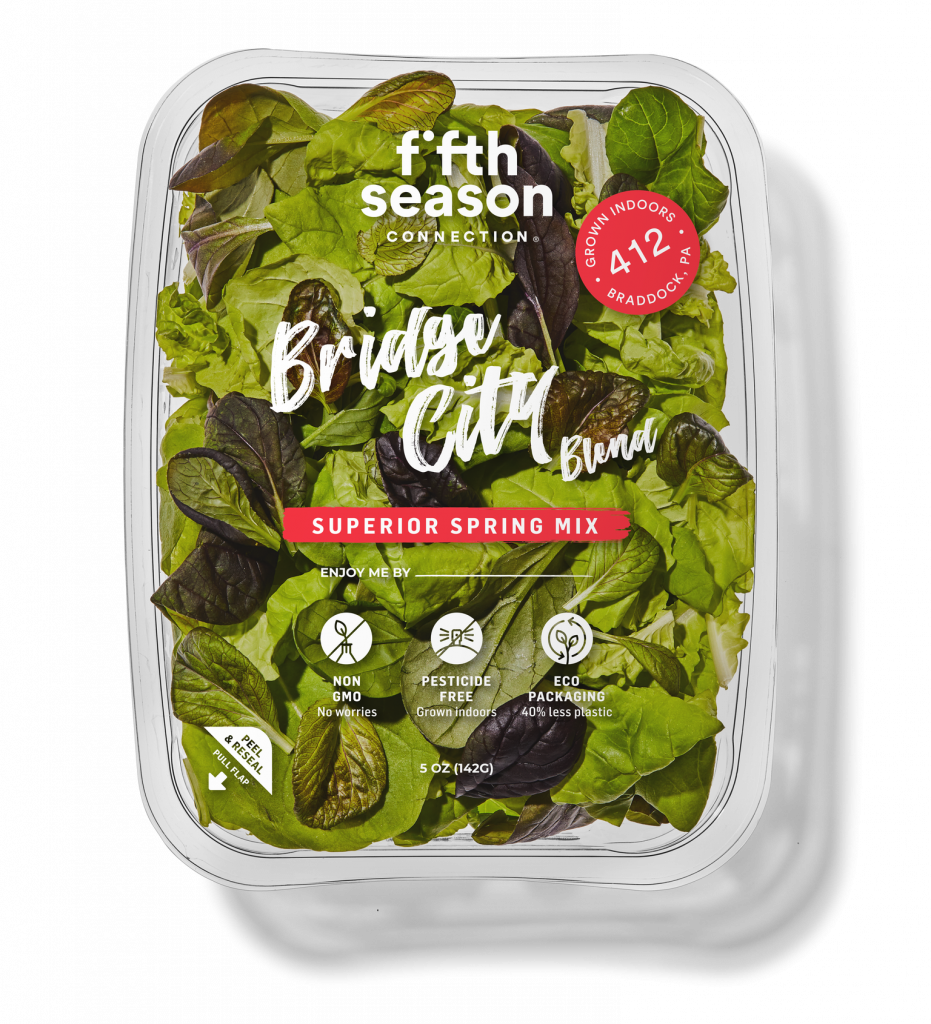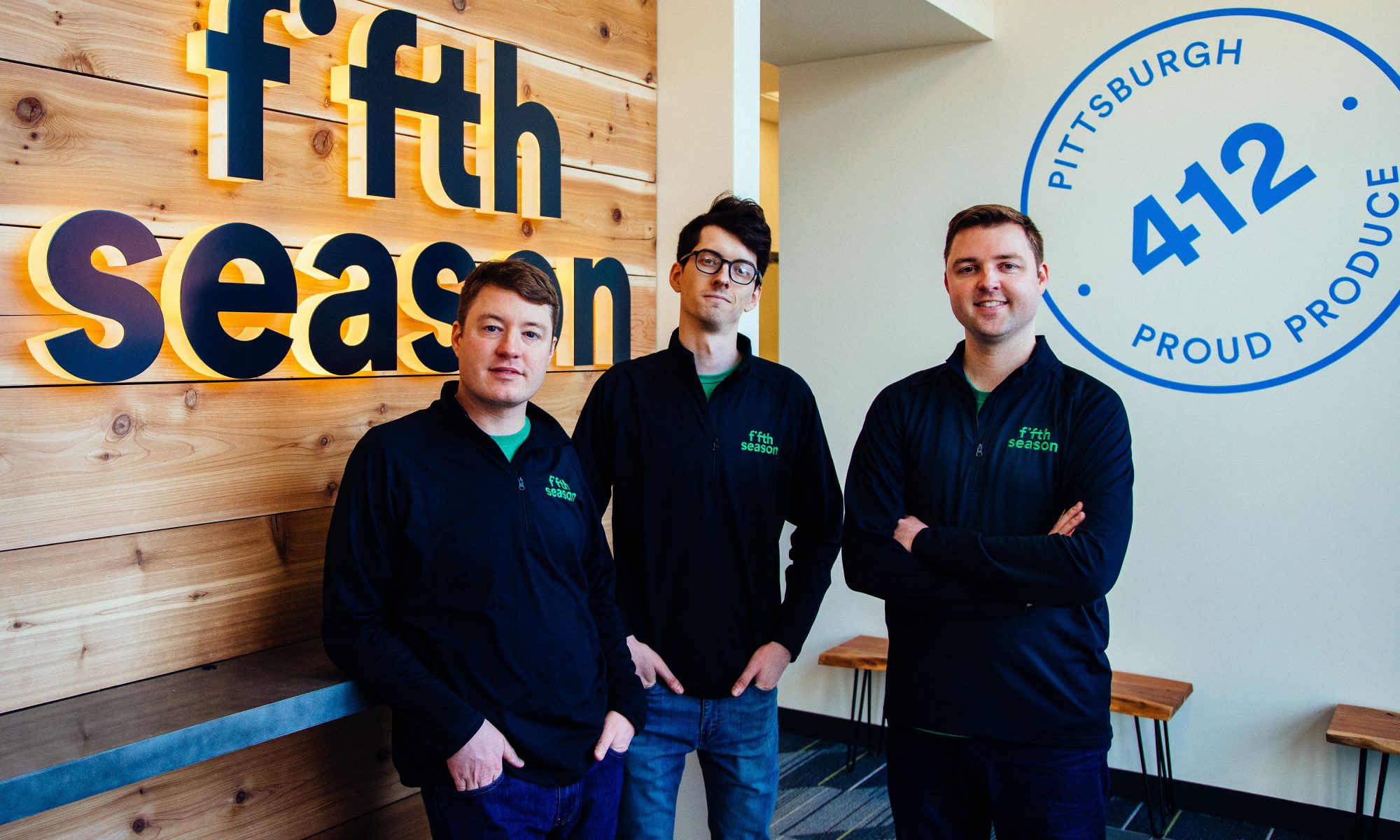Fifth Season is anything but the typical picture of a farm.
As the name suggests, the vertical farm isn’t tied to the weather. Fifth Season, held inside a 60,000-square-foot industrial building in Braddock, grows leafy greens in a highly-controlled environment that allows them to extend Pittsburgh’s salad season.
Vertical farming, a practice that requires less land space by growing crops in vertically stacked layers, has been called the “future of food,” and has been steadily rising in popularity among growers. What sets Fifth Season apart from the rest is their tech: the farm is operated by a combination of robotics and software. The growing room, filled with towers of greens, is monitored and managed by an impressive automated and artificial intelligence system.
Their proprietary software controls everything from temperature to light to the nutrients each plant receives; every crop at Fifth Season grows in what Austin calls a “happy home.” They’ve leveraged data to target the best for each green, balancing sweetness, spiciness, bitterness, and texture, capitalizing on freshness and taste. (Bridge City Blend, Fifth Season’s mix of crisp lettuces, is Harvie’s most popular green during the winter months.)
And, all of this they do with less waste.
“The model of agriculture built by Fifth Season is more sustainable than the traditional, large-scale field farming occurring in Arizona and California,” explains Austin. “First, trucking greens from California and Arizona around the country is no longer sustainable or effective — this is a systemic food miles issue and a freshness issue. Food waste occurs within the supply chain, but much of it also occurs at home due to produce that goes bad only a few days after purchase.”


Austin continues, touching on the amount of water needed to grow greens in those arid climates; the Fifth Season model of indoor farming uses about 90% less water to produce the same amount of food. They also use renewable energy to power a portion of their farms.
“We’re excited about the following our greens and salads have gained in Pittsburgh. There’s such a desire for fresh, ‘forkable’ salads as convenient meal options. [And] we’re meeting customers with fresh, healthy food where they are, be that in the supermarket, the deli aisle, a local convenience store, via Harvie, of course, or through our direct-to-consumer platform, so our salads and greens are very accessible. That’s always a goal for us,” said Austin.
It all began at Carnegie Mellon University, where Fifth Season CEO Austin Webb joined forces with robotics engineer and co-founder Austin Lawrence and current CTO/COO Brac Webb. The three founders saw an opportunity to “positively disrupt” the food industry by combining tech and agriculture.
Choosing Braddock as the home for their first farm was intentional.
“Braddock is a historic steel mill town experiencing a period of revitalization, with local businesses popping up, as well as dedicated activism in the neighborhood. When we found the site in Braddock that would work for us, we were excited because we wanted to contribute to that effort,” Austin explains.
Now, they’re gearing up to open farm number two in Columbus, Ohio. This farm will be three times the size of their Pittsburgh operation, but use the same proprietary system of software and bots.

“Fifth Season is excited to be expanding into new markets, but we’re a Pittsburgh company forever. Working via Harvie… to provide the best products possible to our neighbors will always be a priority and will always bring us joy. We’re grateful to Harvie for giving us such a great outlet to do that,” Austin added.
Fifth Season’s Baby Romaine and Bridge City Blend are available on Harvie. Eat them plain or dressed — either way, they’re always full-of-flavor and delicious.

